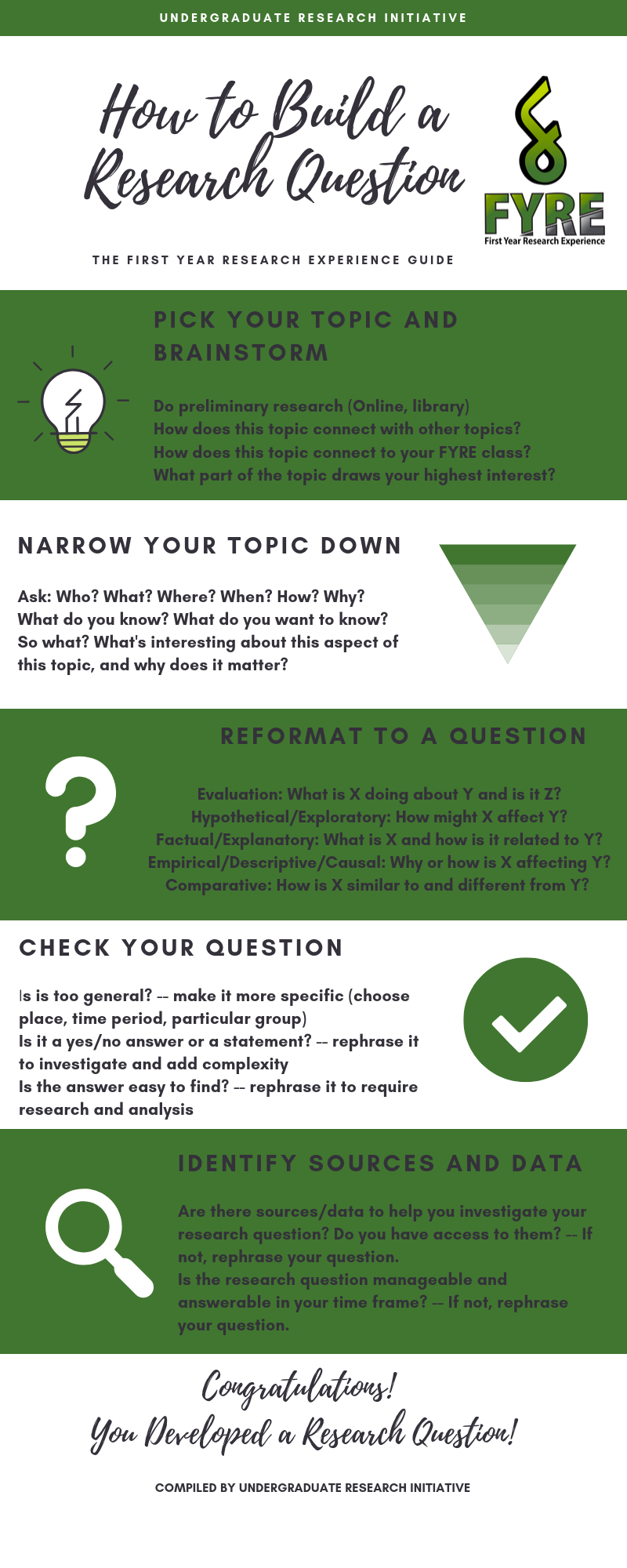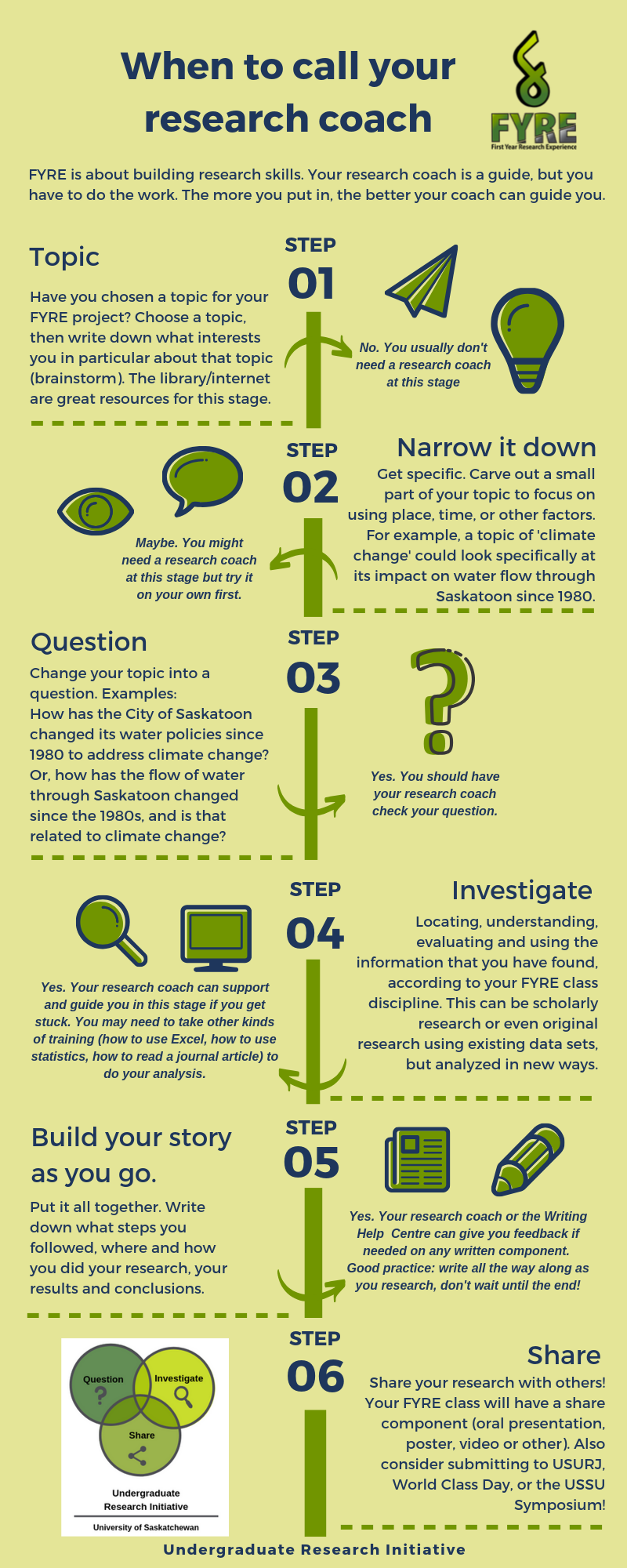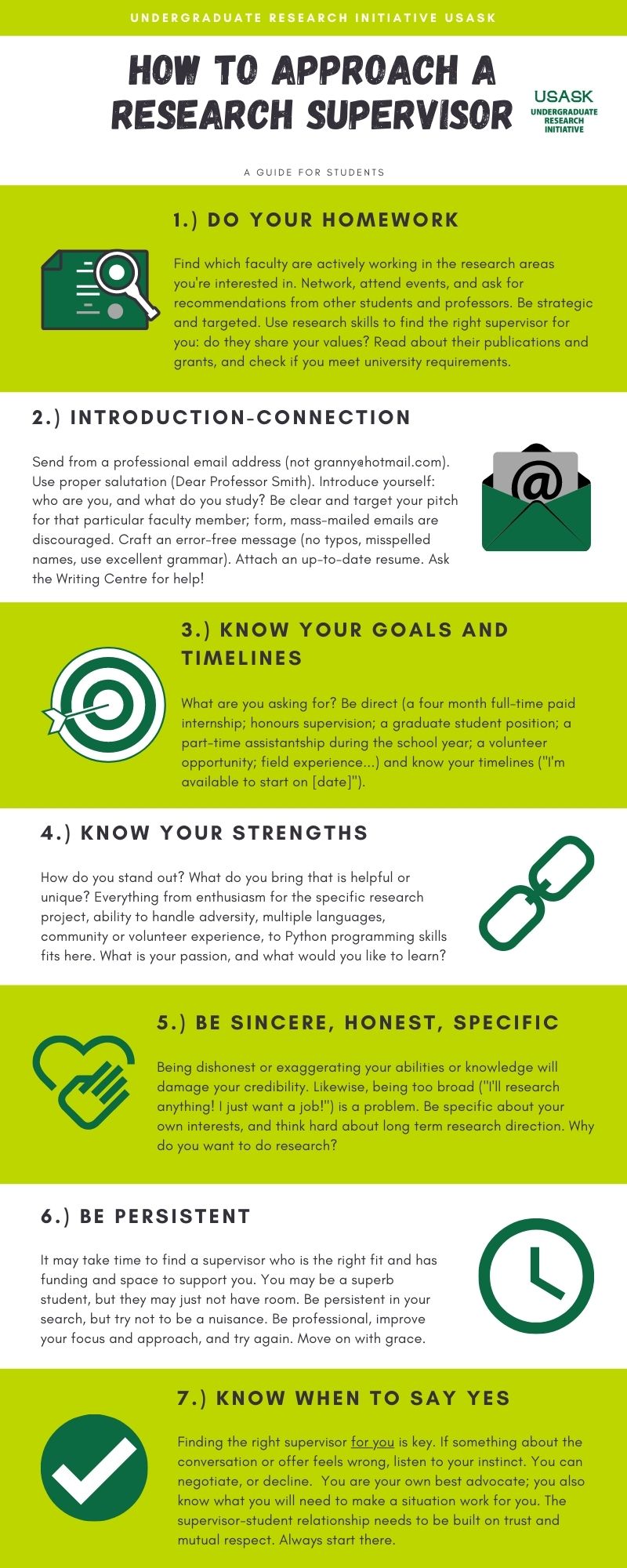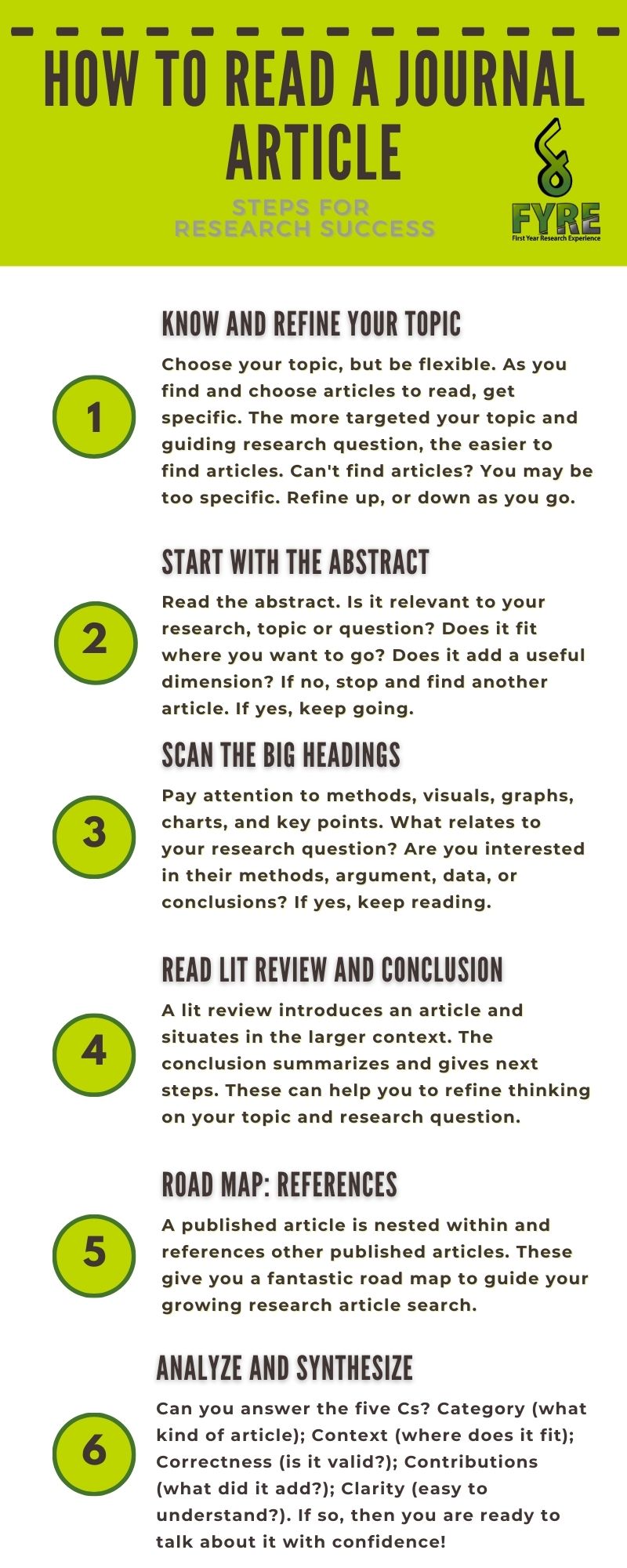How to Guides
We have pulled together a few helpful guides.
Students say that building a good research question is one of the hardest parts of research, no matter if it's a FYRE class or an honours project. We've developed a step-by-step guide to help you out!

Figuring out when to call in your FYRE research coach, and when to try things on your own, can be tricky -- especially if you're new to university research.

Approaching professors to ask about a summer research experience, or other internship or work, takes courage, preparation, and planning.
Prepare: Keep your tone professional in emails and conversations.
Review: Ahead of meeting, check out their research profiles and recent publications
Reflect: Generate some open ended questions to get the conversation going.
Share: Be ready to talk about your research, academic, and career plans.

There are USask, national, and international funding sources for your project. You'll need to identify a supervisor in order to apply -- you will work hand in hand on your application, and your project!
There are two reasons to read a journal article: one, you're trying to find the best ones in your area of research to read for your paper/project; or two, you've got to present on this journal article for your journal club or class. Our guide (download or watch on YouTube) will help!

An abstract is a brief summary of a research paper, article or grant proposal. The abstract allows potential readers to see if the article or project might aligns with their interests.
Prepare: Conferences, sympsia and journals often have a call for abstracts for participants to submit.
Reflect: Does my abstract reflect the main themes of my research? Does it overwhelm the reader with too many details?
Share: Clearly describe the original question that prompted the research, as well as the process for resolving the question.
Presentation skills are an important part of your success as a researcher. Like any skill, they get better with practice. Sharing your research, ideas, and passion with others requires learning how to present effectively.
Prepare: Keep your audience in mind to tailor your message: general public, group of experts in your field, or something in between.
Reflect: Decide on visual aids (photographs, graphs, charts), stories, analogies or examples; think about an everyday means to explain complex material.
Share: Respect the time allotted to you, tell your audience why your research in valuable, and let your enthusiasm show!
This guide shows how creative and artistic presentations came be positioned similarly to scientific research trajectories such as poster.
Prepare: Frame your artistic or creative in terms of a research question or source of inspiration.
Reflect: Tell your audience why you explored the topic the way you did; what influenced your artistic choices?
Share: Take your work beyond the studio and reach a broader audience.
Download the Guide for Creative Presentations
Posters (digital or physical) are are a popular way to share academic research.
Prepare: A poster's information should be simple, succinct, and well-edited. It's an introduction and overview, not a whole paper squished into a poster!
Reflect: Does the poster flow in a logical way? Is there a good mix of text and images? Is it too wordy?
Share: Prepare and rehearse a short pitch to go with the poster. Pay attention to any guidelines. Start work now -- don't wait until the last minute!
For University of Saskatchewan research posters, feel free to use USask pre-made templates.
Academic challenges, hackathons, and competitions can get you more than just funding and scholarships. They also help you establish networks and gain visibility in your field of interest.
Prepare: Use social media, volunteer opportunities, and check out past challenges to find out what might be coming up.
Reflect: Do you have peers and professors who share similar research interests? Ask them to get involved or provide feedback on your project plan.
Share: Apply for internal, national, and international opportunities.
Planning a poster exhibit or research symposia requires some advance planning and coordination in order for things to run smoothly.
Prepare: Find out, or decide, how many posters will be exhibited, choose an appropriate location, and think about the desired outcomes of the exhibit.
Reflect: Get in touch with potential partners and presenters. Give guidelines.
Share: Be sure to create and circulate a notice of the event.
At conferences and other gatherings of researchers, you have the opportunity to form connections and develop contacts that may be useful to you in the future.
Prepare: Both faculty and student connections can lead to fruitful collaborations.
Reflect: Who are the faculty, graduate student mentors, and peers I can reach out to?
Share: Keep a professional profile online to be able to connect with a wider network of peers, researchers, and faculty after events.

